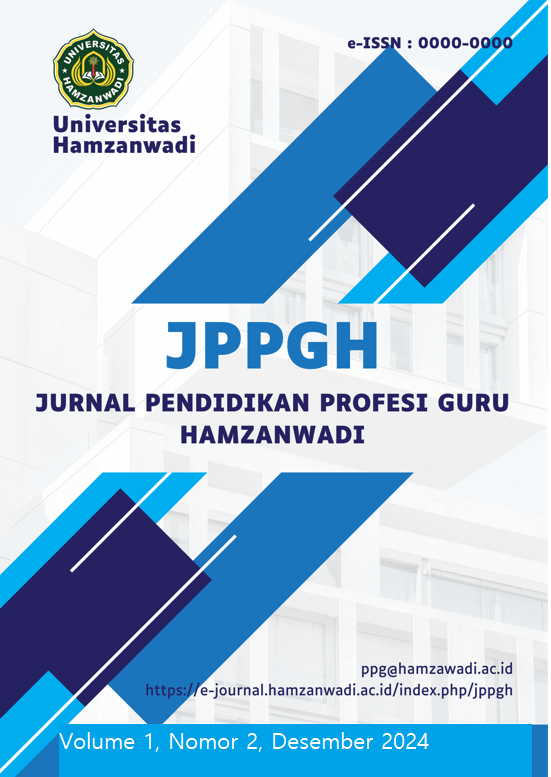Penerapan Model Project Based Learning untuk Meningkatkan Penguasaan Konsep Peserta Didik
Penerapan Model Project Based Learning untuk Meningkatkan Penguasaan Konsep Peserta Didik
Keywords:
Project based learning, Penguasaan konsep, PTKAbstract
This research aims to enhance students' conceptual understanding by applying the project-based learning model or PjBL. The study was conducted at SDN 2 Denggen Timur with class 5A as the research sample. This research uses classroom action research (CAR) and is deemed successful due to the improvement in students' conceptual understanding, as indicated by their cognitive learning outcomes. In cycle 1, the average was 4.21. In the next activity, cycle 2, the activities were the same as in cycle 1, and the result increased by 13.42, reaching 42.36, with the highest score being 65 and the lowest score 30. Cycle 3 also showed an improvement, with the class average rising to 57.36, an increase of 15.00 from the previous cycle, with the highest score being 85 and the lowest score 35. The class completeness was 15.78% because only 3 students achieved the standard score or exceeded the Minimum Competency Criteria (KKM) set by the school, which is 75. In cycle 4, the completeness increased to 78.94%, with 15 students achieving the standard score or exceeding the KKM, and the class average was 78.94, with the highest score being 90 and the lowest score 65. In the final cycle, cycle 5, the class average was 82.10, with a completeness of 89.47%, the highest score being 100 and the lowest score 15, and 17 out of 19 students achieved the standard score or exceeded the minimum completeness criteria
References
Ardianti, S. D., Pratiwi, I. A. & Kanzunnudin, M. (2017). Implementasi Project Based Learning Berpendekatan Science Edutainment Terhadap Kreativitas Peserta Didik. Jurnal Refleksi Edukatika. Vol. 7(2): 145-150.
Azizah, A. (2021). Pentingnya Penelitian Tindakan Kelas Bagi Guru dalam Pembelajaran. Auladuna:
Jurnal Prodi Pendidikan Guru Madrasah Ibtidaiyah, 3(1), 15-22. https://doi.org/10.36835/au.v3i1.475
Baharuddin, H. (2023). PENINGKATAN HASIL BELAJAR SISWA MELALUI PBL PADA PENDIDIKAN AGAMA ISLAM DI KELAS V SEKOLAH DASAR. ELEMENTARY: Jurnal Inovasi Pendidikan
Dasar, 3(2), 87-91.
Dewi, K., Sadia, W. & Ristiati, N. P. (2013). Pengembangan Perangkat IPA Terpadu dengan Setting Inkuiri Terbimbing untuk meningkatkan Pemahaman Konsep dan Kinerja Ilmiah Siswa. Jurnal Pendidikan dan Pembelajaran IPA Indonesia. Vol 3(1): 548-559.
Doyan, A., Hadi, D. F. ., & ‘Ardhuha, J. . (2023). The Effect of PhET Simulation-Assisted ProjectBased Learning Model on Students’ Creative Thinking Skills in Elasticity Materials. Jurnal Penelitian Pendidikan IPA, 9(5), 3856–3861. https://doi.org/10.29303/jppipa.v9i5.3695
Hadi, D. F. ., Doyan, A. ., Ardhuha, J., & Harjono, A. . (2023). The Influence of the PhET SimulationAssisted Project-Based Learning Model on Students’ Ability to Master the Elasticity
Concept. Jurnal Penelitian Pendidikan IPA, 9(4), 1840–1845. https://doi.org/10.29303/jppipa.v9i4.3626
Handriani, L. S., Harjono, A. & Doyan, A. (2015). Pengaruh Model Pembelajaran Inkuiri Tersetruktur dengan Pendekatan Saintifik Terhadap Kemampuan Berpikir Kritis dan Hasil Belajar Fisika Siswa. Jurnal Pendidikan Fisika dan Teknologi. Vol. 1(3): 210-220.
Hopkins, David.A. 2010. Teacher’s Guide to Classroom Research. Philadhelpia: Open University Press.
Kosasih, E. (2014). Strategi Belajar dan Pembelajaran Implementasi Kurikulum 2013. Bandung. Yrama Widya.
Kemendikbud. (2013). Materi Pelatihan Implementasi Kurikulum 2013. Direktorat Jendral Pendidikan Dasar dan Menengah Departemen Pendidikan dan Kebudayaan. Jakarta.
Murfiah, U. (2017). Pembelajaran Terpadu. Bandung: PT Refika Aditama.
Rahayu, R., Iskandar, S., & Abidin, Y. (2022). Inovasi pembelajaran abad 21 dan penerapannya di Indonesia. Jurnal Basicedu, 6(2), 2099-2104.
https://doi.org/10.31004/basicedu.v6i2.2082
Setyosari, P. (2013). Metode Penelitian Pendidikan dan Pembangunan. Jakarta: Kencana Prenadamedia Group.
_________. (2015). Metode Penelitian Pendidikan dan Pengembangan. Jakarta: Kencana Prenadamedia Group.
Siregar, S. (2017). Statistik Parametrik untuk Penelitian Kuantitatif. Jakarta: Bumi Aksara.
Sudjana, N. (2010). Dasar-Dasar Proses Belajar.Bandung: Sinar Baru
________. (2016). Penelitian Hasil Proses Belajar Mengajar. Bandung: PT. Remaja Rosdakarya.
Sundayana, R. (2014). Statistika Penelitian Pendidikan. Bandung: Alfabeta.
Yanto, H. (2017). Pengaruh Variabel Determinan Terhadap Kompetensi Guru Sekolah Menengah Kejuruan. Jurnal Penelitian Tindakan Sekolah dan Pengawas. Vol. 2(1): 23-31.
Zainal, A & Murtadlo, A. (2016). Kumpulan Metode Pembelajaran Kreatif dan Inovatif. Bandung: Satu Nusa.



